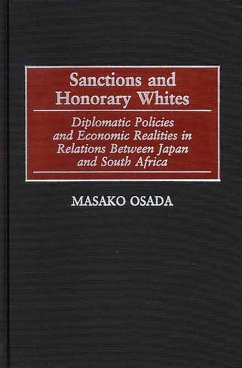This study critically examines for the first time the unlikely friendship between apartheid South Africa and non-white Japan. In the mid-1980s, Japan became South Africa's largest trading partner, while South Africa purportedly treated Japanese citizens in the Republic as honorary whites under apartheid. Osada probes the very different foreign policy-making mechanisms of the two nations and analyzes their ambivalent bilateral relations against the background of postcolonial and Cold War politics. She concludes that these diplomatic policies were adopted not voluntarily or willingly, but out of necessity due to external circumstances and international pressure. Why did Japan exercise sanctions against South Africa in spite of their strong economic ties? How effective were these sanctions? What did the sensational term honorary whites actually mean? When and how did this special treatment begin? How did South Africa get away with apparently treating the Japanese as whites but not Chinese, other Coloureds, Indians, and so forth? By using Japan's sanctions against South Africa and South Africa's honorary white treatment of the Japanese as key concepts, the author describes the development of bilateral relations during this unique era. The book also covers the fascinating historical interaction between the two countries from the mid-17th century onward.









